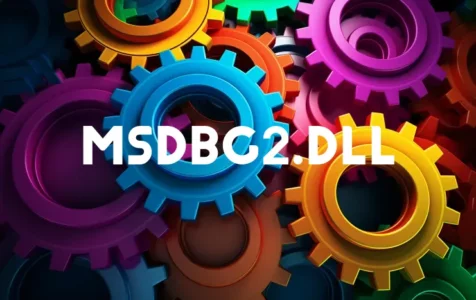The msdbg2.dll file is an integral component of Microsoft Visual Studio 7.0 and Microsoft Visual Studio .NET, specifically associated with the Active Debugging Proxy/Stub. Developed by Microsoft Corporation, this DLL (Dynamic Link Library) file contains functions and procedures essential for debugging applications built using Microsoft Visual Studio platforms. By default, msdbg2.dll is located in a subdirectory of “C:\Program Files\Common Files,” often found at the path C:\Program Files (x86)\Common Files\Microsoft Shared\VS7DEBUG\.
Is msdbg2.dll Safe to Run?
The msdbg2.dll file is legitimate and not inherently harmful to your system. It is not a system file of Windows, meaning it doesn’t come pre-installed with the operating system but is installed with certain software, specifically Microsoft Visual Studio versions.
However, because DLL files are commonly used by many programs, they can sometimes be targeted or mimicked by malicious software. The safety of this file can be verified by checking its location and digital signature. The official msdbg2.dll should be digitally signed by Microsoft and typically resides in the Visual Studio directories.
Could msdbg2.dll Be a Virus or Malware?
Malware and viruses can disguise themselves as DLL files, and msdbg2.dll is no exception. A telltale sign of this DLL being compromised could be an unusual file size or location. It’s important to analyze where the file is stored; for instance, if you find msdbg2.dll in C:\Windows\System32, it could potentially be a harmful variant of the file.
Expert Tip: For smoother PC performance, consider using a PC optimization tool. It handles junk files, incorrect settings, and harmful apps. Make sure it's right for your system, and always check the EULA and Privacy Policy.
Special offer. About Outbyte, uninstall instructions, EULA, Privacy Policy.
Common Issues Associated With msdbg2.dll
Issues with msdbg2.dll often occur during program startup or when trying to use a specific function related to the debugger in Visual Studio. Error messages may include “msdbg2.dll not found,” “msdbg2.dll file missing,” or more general DLL loading failure alerts.
How to Fix Issues With msdbg2.dll
To address issues with the msdbg2.dll file, follow these detailed instructions:
– Check the Recycle Bin: If you’ve accidentally deleted the msdbg2.dll file, you might be able to restore it from the Recycle Bin.
– Reinstall the Affected Software: Uninstall and then reinstall the Microsoft Visual Studio-related program that is prompting the error.
– Open the Control Panel and go to “Programs and Features.”
– Locate the relevant Microsoft Visual Studio version and uninstall it.
– Reinstall the program using the original installation media or download it from the official Microsoft website.
– Run a Malware Scan: Utilize a reliable antivirus program to scan for any instances of malware or virus on your system.
– System File Checker (SFC): Use the built-in Windows tool to scan for and repair corrupted system files.
– Open Command Prompt as administrator.
– Type `sfc /scannow` and press Enter.
– Update Windows: Ensure you’re running the latest version of Windows, as updates often include patches for security and system stability issues.
– Download and Register the DLL: If none of the above methods work, you might need to manually download and register the msdbg2.dll file.
– Always ensure you download the DLL from reputable sources to avoid inadvertently introducing malware to your system.
It’s worth noting that you should be cautious when handling DLL files. Deleting or altering them without proper knowledge can lead to system instability.
If you’ve tried these methods and are still experiencing issues, you may find community forums and discussions helpful where users share their experiences with similar problems. However, due to the policy of not including certain links in this article, direct links to such discussions are not provided here.
Remember, regular system backups and setting restore points can help you revert your system to a previous state, safeguarding against issues resulting from changes to system files like msdbg2.dll.
